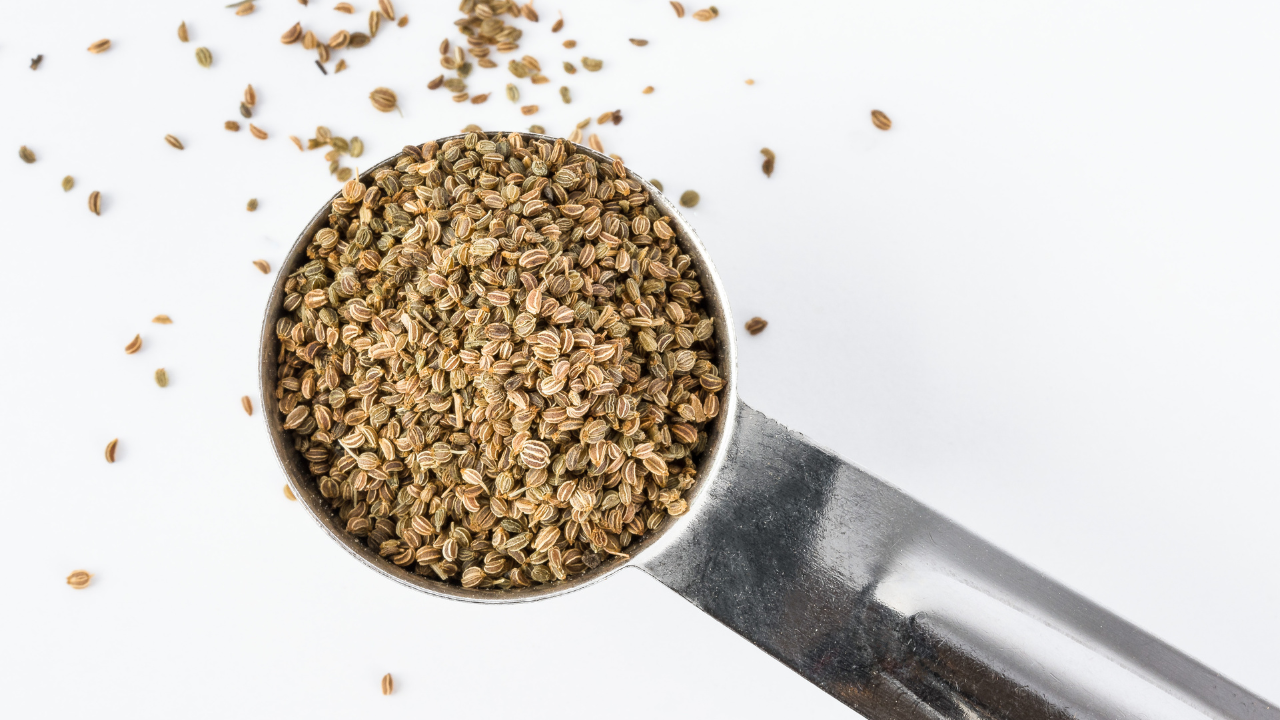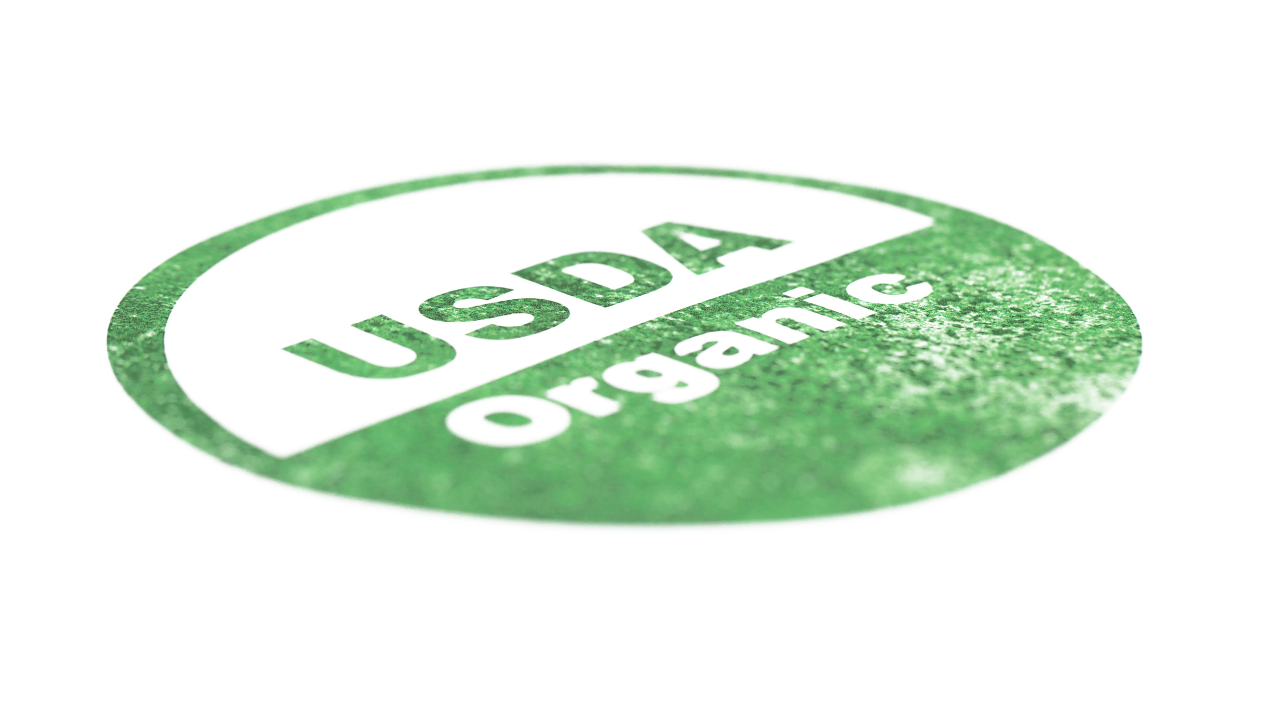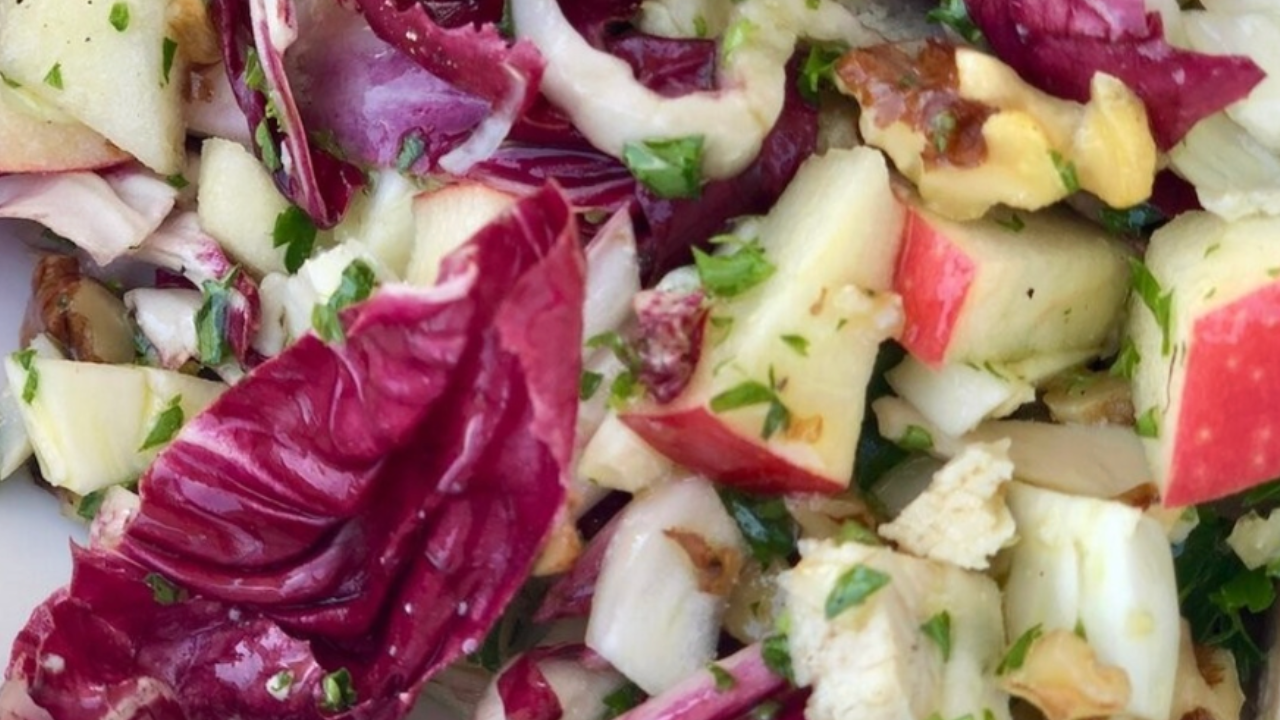Crunch your way to lower BP
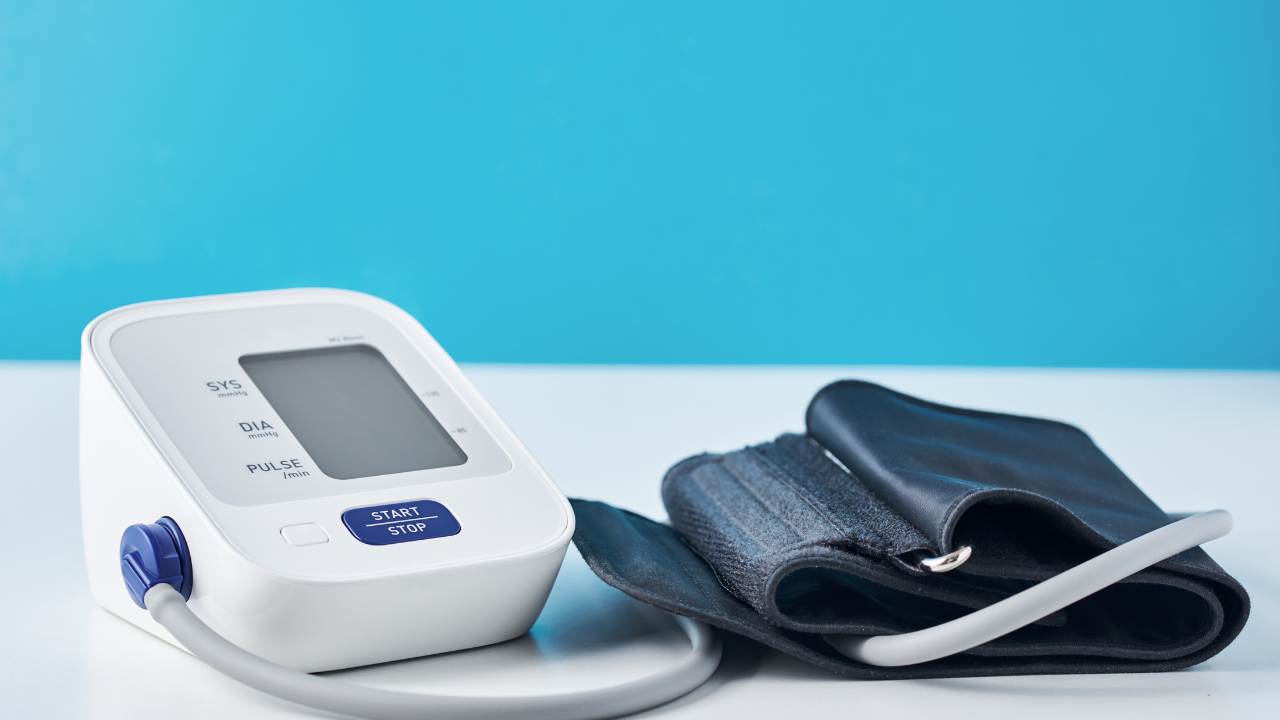
High blood pressure (hypertension) is one of the most common—and most modifiable—risk factors for heart disease. While medication is sometimes necessary, nutrition and lifestyle are always great game-changers.
One humble vegetable that's worthy of attention for it's positive impact on blood pressure? Celery.
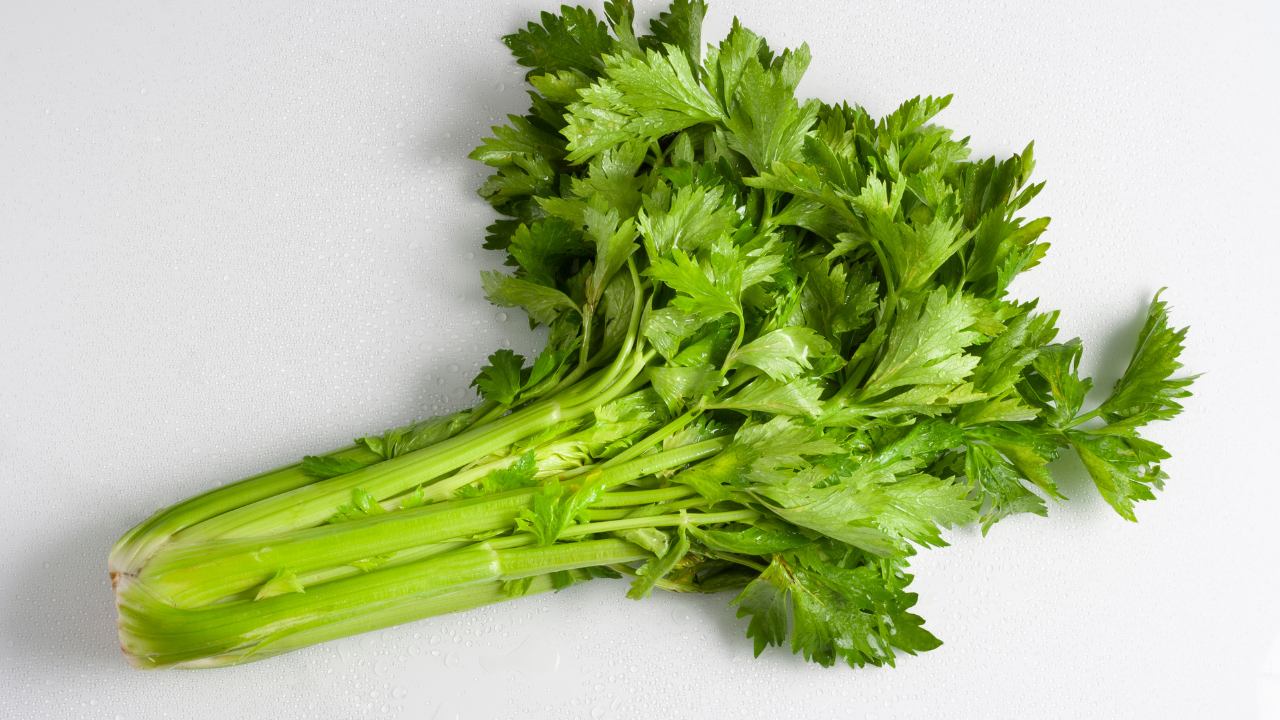
How does celery support healthy blood pressure?
Celery’s potential benefits come from a unique mix of compounds and nutrients:
-
Natural phthalides: Compounds like 3-n-butylphthalide relax the smooth muscles of artery walls, reducing vascular resistance and helping blood flow more freely (1,2).
-
Apigenin (a flavonoid): Found in celery stalks and leaves, apigenin has antioxidant, anti-inflammatory, and vasorelaxant properties that may further support vascular health (3).
-
Potassium boost: One cup of chopped celery provides ~260 mg potassium. Potassium helps balance sodium levels, reduces fluid retention, and eases tension in blood vessels (4).
-
Hydration and fiber: Celery's mass is said to consist of up to 95% water! This supports fluid balance, steady digestion, and healthier blood sugar—all important for long-term cardiovascular health (5).
-
Mild diuretic effect: Compounds concentrated in celery seeds act as gentle diuretics, encouraging the body to excrete excess sodium and fluid (6).
-
And, perhaps even more importantly, it helps crowd out less nutritious options: Prioritizing celery instead of bread, crackers, or refined flour-based snacks helps move those blood-sugar-spiking choices to the 'back seat'—making more room for foods that truly nourish your heart.
How much celery makes a difference?
Studies cite blood pressure lowering benefits from eating celery, albeit the studies on consuming celery seed extract are more robust (1,2). However, in my 18 years of practice I've never recommended supplementing with celery seed extract, instead I always encourage my clients to add celery into their regular food rotation - it's a very simple, tasty, and powerful step in the right direction.
What's a practical target? 4–6 large stalks per day.
Whether you enjoy it raw with hummus or chopped into salads, or added into soups - that’s a do-able amount that can help support blood pressure in a food-first, sustainable way.
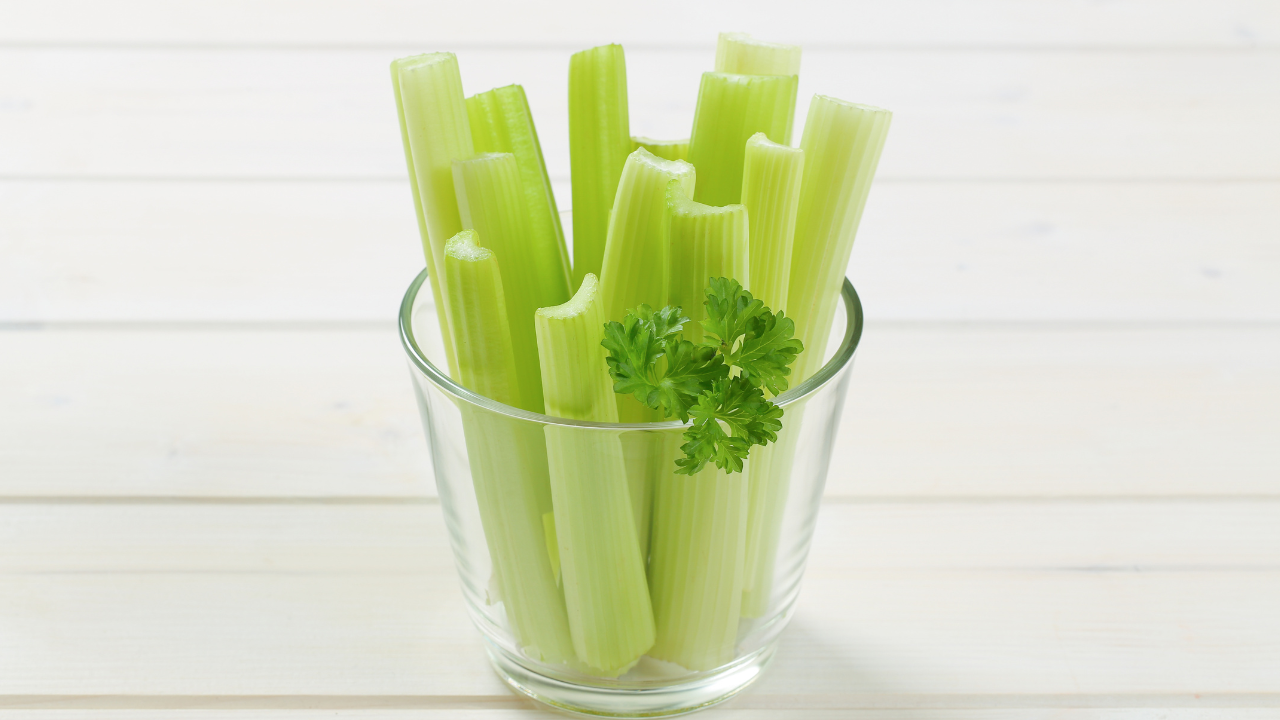
But, it's never just about eating one single food...
The beauty of a whole-foods approach to health is the synergy between nutrients, fibers, and phytochemicals which generates results FAR greater than any single food or supplement on its own.
Celery supports healthy blood pressure, but it’s even more effective when woven into a broader dietary pattern—such as the DASH diet.
What is the DASH diet?
The DASH diet—short for Dietary Approaches to Stop Hypertension—is one of the most well-studied nutrition patterns for lowering blood pressure. It emphasizes:
-
Plenty of fruits and vegetables
-
Lean proteins like poultry, fish, and beans
-
Whole grains
-
Low-fat dairy (FYI - this is a reflection of “old school” guidelines)
-
Limited added sugars, red meat, and excess sodium
DASH has been shown to lower systolic blood pressure by 8–14 mmHg (7,8).
In my practice, I use DASH principles but tailor the specifics to fit your preferences, needs, labs and lifestyle. Celery is an easy win that layers seamlessly into this personalized approach.
How does celery compare to other BP lowering strategies?
For perspective, here’s how celery fits into the mix of proven blood pressure strategies:
-
Celery seed extract (1,000–1,500 mg/day in studies): ~11 mmHg systolic / ~8 mmHg diastolic (6).
-
Aerobic exercise (150 min/week): ~5–8 systolic / 3–5 diastolic (9).
-
Mindfulness or stress management: ~5–7 systolic / 4–6 diastolic (10).
-
DASH diet: ~8–14 systolic (7,8).
👉 While the research on celery seed extract is stronger, my approach is always a food first approach—because celery stalks and seeds have more potential than a single isolated compound.
And that brings up an important distinction: when we talk about seeds, it’s worth clarifying how celery seeds differ from the more familiar celery salt you may have seen in spice blends...
What's the difference between celery seeds vs. salt?
You may be familiar with celery salt—most famously found in Old Bay seasoning. Although I’m not recommending Old Bay as a daily go-to, many of us have sampled that seasoning on seafood at some point.
Here’s the distinction:
-
Celery seeds = tiny, nutrient-packed seeds with mild diuretic and blood-pressure-supportive compounds.
-
Celery salt = celery seed + added salt. Fine in moderation, but not the same as cooking with pure celery seeds.
How to use celery seeds
Celery seeds are best used ground so their flavor and benefits are released fully.
A few suggestions include:
-
Whisk into vinaigrettes or creamy dressings
-
Stir into coleslaw, potato salad, or soups
-
Add to spice rubs for poultry, turkey, or fish
-
Sprinkle over roasted veggies for a savory twist
Does the celery need to be organic?
Yes, ideally! Celery is consistently on the Dirty Dozen list (11), meaning it’s among the conventionally grown produce items with the highest pesticide residues. Because celery is thin-skinned and water-rich, residues are difficult to wash away.
If you’re eating it daily, choosing organic maximizes the benefit, and minimizes your exposure to pesticides etc. If/when organic isn’t an option, peeling outer layers can help reduce residues.
The bottom line
Studies support celery’s role in blood pressure management.
I see dramatic improvements in cardiovascular measures when people make healthier food and lifestyle choices time and time again. They have more energy, they lose weight, they feel better, they make better choices all around—their lives improve. It may sound like a stretch, but it’s true.
That’s why I wholeheartedly recommend increasing your intake of celery if you’ve been diagnosed with elevated blood pressure.
Aiming for 4–6 stalks a day is a simple, realistic, and nourishing habit that not only supports heart health but often sparks a cascade of healthier changes.
Suggestions to get you started...
-
Celery & apple slaw with ground celery seed vinaigrette
- My favorite GFCF Waldorf salad
-
Celery sticks with hummus or almond butter — a classic, blood-sugar-friendly snack
TL;DR
-
Whole celery: Studies support its role in lowering blood pressure, even though evidence isn’t as robust as it is for celery seed extract. Aiming for 4–6 stalks daily is a practical goal.
-
Why it works: Celery contains phthalides (1,2), apigenin flavonoid (3), potassium (4), fiber + hydration (5), mild diuretic compounds (6).
-
DASH diet: 8–14 mmHg systolic reduction (7,8).
-
Other strategies: Exercise (9) and stress management (10) lower BP too.
-
Seeds vs. salt: Ground celery seeds add flavor and function; celery salt is different (think Old Bay).
-
Organic matters: Celery is on the Dirty Dozen list (11).
-
Practice perspective: I’ve seen clients thrive when adding foods like celery—weight improves, energy improves, and choices improve. I recommend it wholeheartedly if your BP is elevated.
References
-
Alobaidi M, Saleh M. The Effects of Celery on Hypertension: A Narrative Review. Cureus. 2024;16(2):e57468. doi:10.7759/cureus.57468
-
Liu D, et al. Efficacy of celery preparations in lowering blood pressure: A systematic review and meta-analysis of randomized controlled trials. Front Nutr. 2025;8:1597680. doi:10.3389/fnut.2025.1597680
-
Salehi B, et al. Apigenin: A natural flavonoid with promising therapeutic potential. Biomed Pharmacother. 2019;109:1500–1510.
-
Houston M. The role of potassium in managing hypertension. Curr Hypertens Rep. 2011;13(4):309–317.
-
Slavin JL. Fiber and prebiotics: Mechanisms and health benefits. Nutrients. 2013;5(4):1417–1435.
-
Shayani Rad S, et al. Celery seed extract improves blood pressure in adults with hypertension: A randomized, triple-blind, placebo-controlled, cross-over trial. Phytother Res. 2022/23. doi:10.1002/ptr.XXXX
-
Sacks FM, et al. Effects on blood pressure of reduced dietary sodium and the DASH diet. N Engl J Med. 2001;344(1):3–10.
-
Siervo M, et al. Effects of the DASH diet on blood pressure in adults with and without hypertension: A meta-analysis. Br J Nutr. 2015;113(1):1–15.
-
Cornelissen VA, Smart NA. Exercise training for blood pressure: A systematic review and meta-analysis. J Am Heart Assoc. 2013;2(1):e004473.
-
Hughes JW, et al. Effect of stress reduction on blood pressure: A systematic review. J Hypertens. 2013;31(10):1929–1938.
-
Environmental Working Group. Dirty Dozen 2024. https://www.ewg.org/foodnews/

